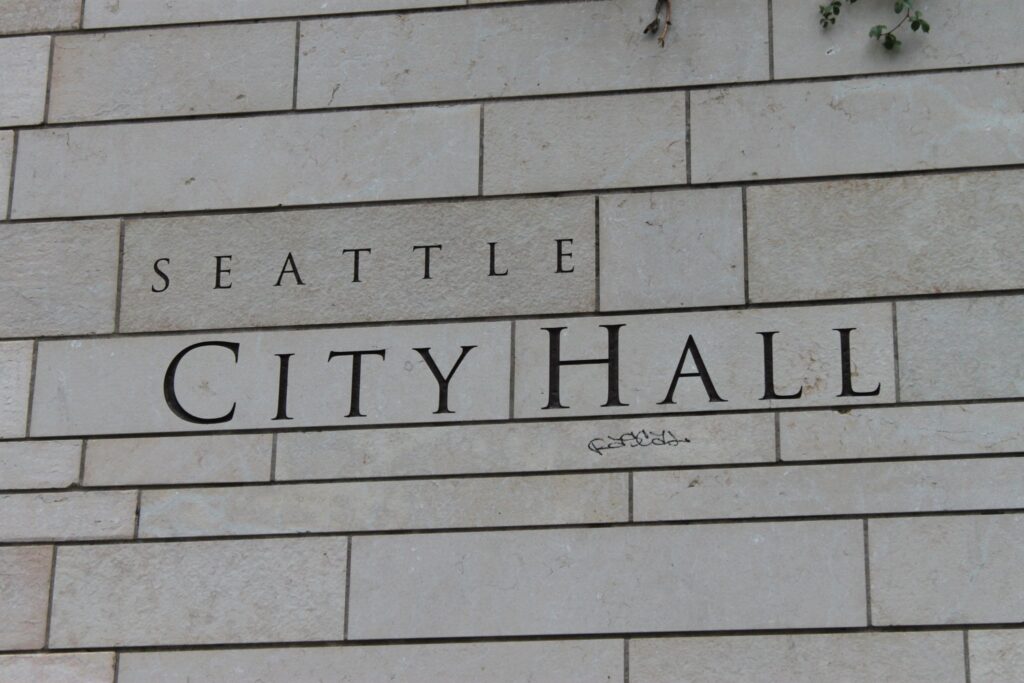City Hall should stay out of the way of home-based businesses
Home-based businesses have long been a viable means by which people support themselves. It’s essential that governments make it easier, not harder, for cottage industries to thrive.
The importance and prevalence of home-based businesses
“For most of human history, the idea that a ‘home’ could also be a center of productive activity was hardly an aberrant one,” wrote Nicole Stelle Garnett, then an assistant professor of law at Notre Dame Law School in a 2001 article. “The phenomenon of leaving ‘home’ to go to ‘work’ became commonplace only after the Industrial Revolution changed the rhythm of daily life.”
While less prevalent than before, home-based businesses remain commonplace in the United States. About half of the estimated 30-million businesses in the United States are operated from home, according to the U.S. Small Business Administration.
The types of businesses can vary widely. Most (60.1 percent) businesses without other paid employees are home-based, as are 23.3 percent of “small employer firms.” According to the SBA, 65.3 percent of professional, scientific and technical services businesses are home-based, as are 68.2 percent of construction businesses.
There are some obvious reasons why people will choose to operate a home-based business rather than immediately take the leap into a brick-and-mortar business out of their home.
As Chris Edwards of the Cato Institute notes, “Homes are low‐cost incubators to test business ideas before larger investments are made. Startups are risky and have high failure rates, so entrepreneurs need early, low‐cost feedback from consumers. Food entrepreneurs, for example, want to test recipes with consumers but may not be able to initially afford commercial kitchen space.”
But there are other reasons too. This includes the work-life balance made possible by home-based businesses. The ability to run a home-based business can make it easier for entrepreneurs to raise, take care of and spend time with their families. A growing number of Americans have had a sense of what this is like with the rise in remote work during the coronavirus pandemic.


Local governments tough on home-based businesses
While many, if not most Americans, can appreciate the merits and value of home-based businesses, the blurring of the lines between “work” and “home” can also be negatively viewed as “an affront to a core, foundational principle of American zoning laws – the idea that ‘home’ and ‘work’ are incompatible, that the ‘home’ should be carefully segregated into exclusively residential, commerce-free zones,” as Professor Garnett explained.
Accordingly, local governments can be quite tough on home-based businesses, requiring a litany of paperwork and imposing various restrictions on what sort of activity is permitted or not permitted.
In 2022, the Institute for Justice, a non-profit public interest law firm and libertarian advocacy organization, published a report surveying the barriers imposed on home-based businesses by 20 cities across the country.
Most home-based business owners reported it took over two months or more for their businesses to clear local government regulatory hurdles. In cities requiring what are called “conditional-use permits” to operate a home-based business, it took more than three months to clear regulatory hurdles.
The sort of restrictions can vary significantly from city to city.
Boise, Idaho, for example, requires a conditional-use permit for certain types of businesses, imposes different limits on the number of clients a home-based business can receive depending on whether they have a conditional use permit and caps the square footage of a home that can be devoted to the business at 500 square feet.
Seattle, meanwhile, doesn’t require a conditional-use permit, requires clients to home-based businesses to be by appointment only, and caps the square footage of a home that can be devoted to the business at 500 square feet if the home is a single-family home or duplex.
Phoenix requires a conditional use permit if clients will visit the home, as well as a public hearing over the conditional-use permit. Rather than a square-footage limit, the city imposes a limit on the square-footage of a home that can be devoted to the business at 25 percent of the home.
San Francisco, by comparison, doesn’t require conditional-use permits, but only allows client-visits and in-home sales for cottage food or produce. The city limits the square footage of a home that can be devoted to the business at one-third of the home.
What local government overregulation can look like in practice
Back in 2018, Christina Sandefur of the Arizona-based Goldwater Institute told the story of Kim O’Neil in Chandler, Ariz. O’Neill moved her medical billing company from an office to her home after her father became ill so she could care for him while continuing to work.
The business operated discreetly. Her employees worked from their own homes. Customers didn’t show up to the house. And there was no signage or other visible signs of business activity.
“Nevertheless, when city officials learned about the arrangement, they initiated months of tedious back-and- forth with O’Neil, with ever-increasing demands and legal threats,” Sandefur wrote. “First, they told her she had seven days to apply for a special-use permit or face legal action, even though no one had previously told her she needed the city’s permission to work from home. Then they said she needed to construct a commercial parking lot on her property, even though no clients or employees would ever use it. They even demanded she attend monthly meetings with the city.”
O’Neil eventually relented and rented office space instead of dealing with the city, describing it as one of the most stressful experiences of her life.


How should cities approach home-based businesses?
There are two levels at which solutions can be found: the state level or the city level.
In response to the sort of restrictions experienced by entrepreneurs like Kim O’Neil, Sandefur’s Goldwater Institute drafted state legislation – the Home Based Business Fairness Act – to restrict local governments from imposing onerous permitting and licensing schemes on such businesses which have “no impact” on their communities.
Businesses which fall under the definition of “no impact” are those that do not meaningfully increase traffic or take up parking spaces, which comply with all health and safety regulations and whose business activities are not visible from the street, among other reasonable rules.
Local governments strongly opposed the legislation in 2018, complaining it undermined “local control.” The bill failed to advance.
This year, however, the bill made it through the Arizona Legislature, only to be vetoed by Gov. Katie Hobbs, who echoed the talking points of city government groups which again opposed the bill. “While there is no doubt that more can be done to support small businesses in Arizona, this approach is far too broad,” she wrote in her veto message. “The bill would create challenges for public safety and code enforcement in neighborhoods.”
The concerns aren’t true, of course. Under a piece of state legislation giving home-based business owners more latitude, by right, to operate as long as they have “no impact” on their neighborhoods, local governments would retain the ability to enforce public safety and other relevant code violations.
Many local governments merely want to maintain their control over home-based businesses if anything out of an overabundance of caution. Angry, self-organized NIMBYs (Not In My Back Yarders), after all, are a constituency many local council members routinely try to appease.
Short of state legislation, there’s nothing stopping cities from recognizing the value and benefits of home-based businesses and liberalizing their own rules accordingly. This includes removing requirements to obtain conditional-use permits or specific licenses, removing arbitrary space restrictions, and allowing home-based businesses to welcome clients. There should be a “by right” presumption that home-based businesses are permitted.
City Hall can certainly play a role, if it must, in enforcing common-sense ordinances to reduce and contain negative externalities. Barriers should only be thrown up when they’re actually needed.
Sal Rodriguez is opinion editor for the Southern California News Group and a senior fellow with the Pacific Research Institute. He is the author of “Dynamism or Decay? Getting City Hall Out of the Way,” published by the Pacific Research Institute.

